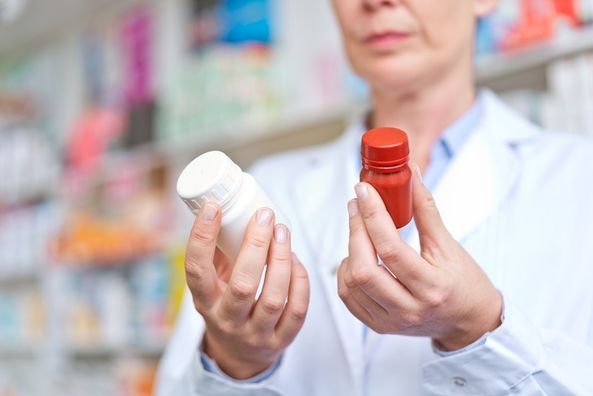Men can develop a variety of urinary symptoms or changes with their prostate gland as they age. Most don’t seek medical treatment for these issues, treating frequent nightly trips to the bathroom and other symptoms as an inevitable part of the aging process. Developing conditions like benign prostatic hyperplasia (an enlarged prostate), urinary incontinence, overactive bladder or lowered testosterone levels doesn’t mean you should suffer in silence. These conditions are likely to worsen over time and if left untreated, can lead to other health problems and have a serious impact on your overall health. Depending on the severity of your symptoms and their impact on your daily routine, there are treatment options available to help.
Myth #1: If you develop Benign Prostatic Hyperplasia (BPH), the severity of your urinary symptoms depends on the size of your prostate and having an enlarged prostate increases your chances of developing prostate cancer.
Fact: BPH is common condition, impacting nearly 70 percent of men by the age of 60, which causes your prostate gland to become enlarged. As your prostate gland grows, it may begin to apply pressure on your urethra and eventually impairs or blocks the flow of urine from your body. This can cause symptoms including difficulty starting to urinate, a weak stream, increased urge and frequency to urinate and difficulty fully emptying your bladder. In some men, their prostate gland becomes enlarged without having a significant impact on their bladder or urinary tract and as a result their symptoms are minimal. In other men, their prostate gland may be only slightly enlarged but it impacts their urinary system enough to cause severe symptoms.
Having an enlarged prostate gland does not mean you are at a higher risk for prostate cancer, however, if left untreated, BPH can damage to your bladder and you are more likely to experience chronic urinary tract infections. If you experience urinary symptoms that may be caused by BPH, a urologist can perform a physical exam, assess the severity of your symptoms and help you select a treatment that’s right for you.
Myth #2: Erectile dysfunction (ED) is due to an issue in your groin or is all in your head and has no connection to your lifestyle or physical health.
Fact: Difficulty getting or maintaining an erection can be frustrating and embarrassing. Many men assume that the issue stems solely from their groin area, or chalk it up to mental block. While ED can be caused by a variety issues including stress, if the problem persists for more than three months, you should not ignore it. Prolonged periods of ED could be a symptom of other underlying health conditions including elevated blood pressure or high cholesterol. Over time these conditions can damage your blood vessels and restrict blood flow throughout your body, including to your penis, making achieving an erection difficult. Unhealthy habits like smoking can also damage blood vessels. Quitting smoking may help reduce your erection difficulties over time. Other chronic conditions like diabetes, low testosterone or depression are also linked to ED. It is important to alert your doctor if you experience ED so they can help you to rule out other underlying health conditions that may be contributing to your symptoms. It is also important to know that there are treatment options for all severities of ED. You do not have to suffer!
Myth #3: Infertility is a female problem.
Fact: The adage “it takes two to tango” is very true when it comes to infertility. Research has shown that 30% of all fertility issues solely involve the male reproductive system. The initial screening test for men is simple and only involves a semen analysis. This will rule out most male infertility issues. If there are abnormalities seen on your semen analysis, there are various options to help improve the abnormalities.
Myth #4: Testosterone levels indicate how masculine you are and higher or lower that average levels of testosterone aren’t a big deal.
Fact: Your testosterone level fluctuates often and can be impacted by a variety of other factors. Lower testosterone does not mean you are less manly. Your diet, activity level and certain health conditions including obesity or sleep apnea can cause your testosterone levels to drop. It is important to determine what is causing your low testosterone before selecting a treatment. Keeping your testosterone within a normal range is an essential part of maintaining your overall health. Failing to address low testosterone can increase your risk of osteoporosis, heart disease and depression. If you are considering testosterone supplements, it is important to do so under the care of a medical professional because in some cases these supplements and a higher-than-average testosterone level can have adverse health implications. For some testosterone supplements can cause sleep apnea to worsen or increase your risk of developing cardiovascular problems. Using testosterone medications to boost your athletic performance can also cause your testicles to shrink and have a negative impact on your fertility. Your urologist can help you determine what is causing your low testosterone and which treatment option is best, and safest for you.
Myth #5: Prostate cancer doesn’t run in my family, so I don’t need to worry about it, or be screened.
Fact: While family history of prostate cancer increases your chances of developing prostate cancer, age is the largest risk factor. Prostate cancer develops in one in every seven men as they age and often does not cause any noticeable symptoms until it has reached a more advanced stage. This means it is important to take steps to reduce your risk now and be aware of the warning signs. Staying active, eating a balanced diet and maintaining a healthy weight are easy ways you can reduce your risk of developing prostate cancer in the future. You should alert your primary care provider or consult with a urologist if you notice chances with your urine including urinary frequency, discomfort when urinating or blood in your urine to determine the cause and begin treatment.
While it is not uncommon for your bladder or prostate to change as you age, you should not ignore the symptoms. Many men’s health conditions can be treated easily with lifestyle changes and medical care including medications and minimally invasive procedures. If you experience any changes related to your bladder or prostate, or have other male-specific concerns, meeting with a urologist can help you minimize the impact symptoms have on your daily life and keep you healthy and active as you age. Schedule with a Urology doctor online or call 630−790−1221.
Health Topics:







